Baby tennis balls and foam balls
Baby tennis balls are ideal for teaching young kids to handle a racket.

Do you play occasionally or frequently? Do you want a pressureless or pressure ball? Choosing the right tennis ball depends first and foremost on the features you're looking for.
When choosing a tennis ball, you'll need to take a few things into account: your skill level and the features you're looking for.
Baby tennis balls are ideal for teaching young kids to handle a racket.
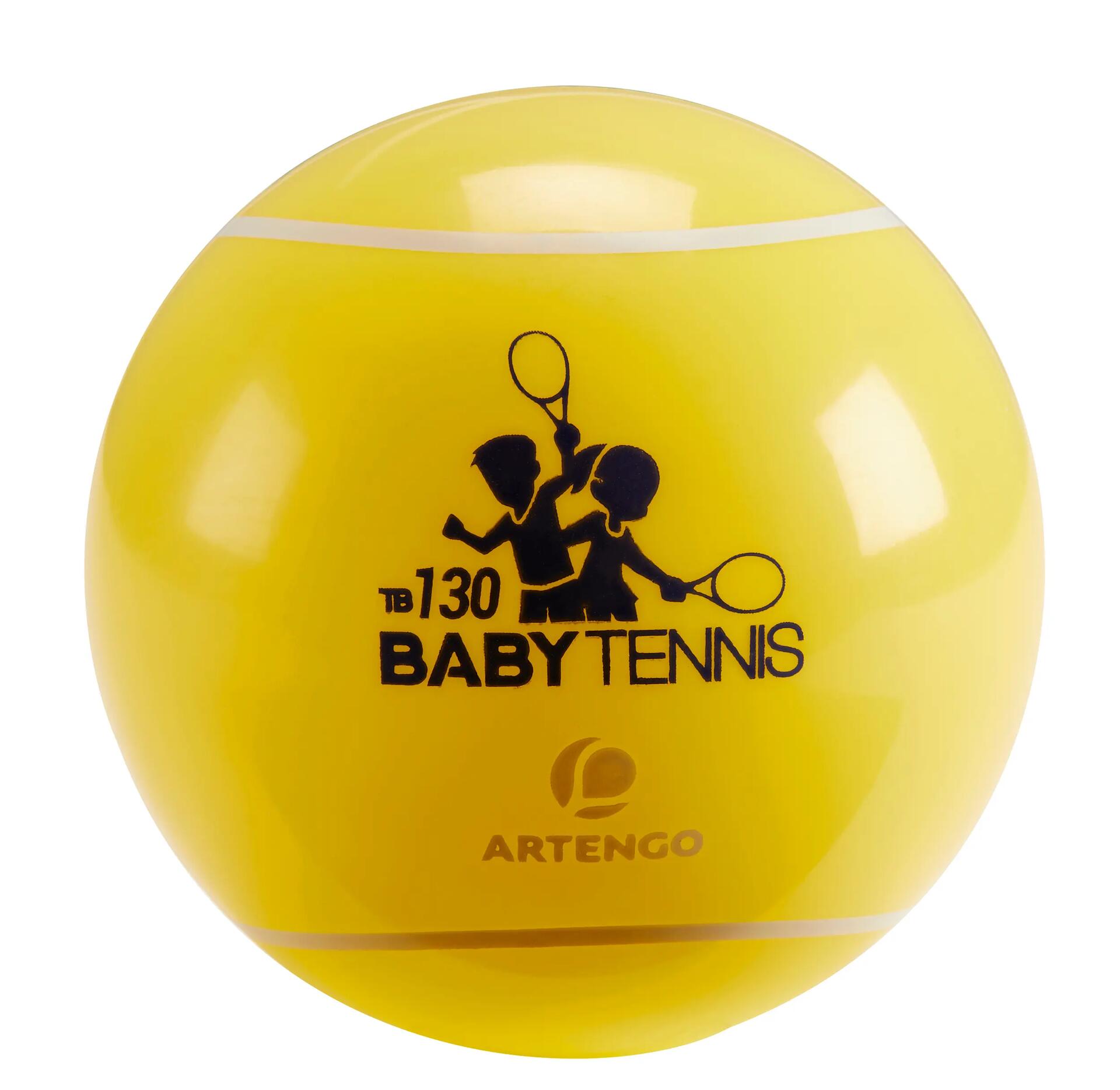
Tb130 baby tennis ball
Baby tennis balls are perfect for kids aged 3 to 5 who are figuring out the basics.

Tb100 7 cm foam ball
Our designers created this foam ball for kids under 6 learning to play tennis. They are very slow balls.

Tb100 9 cm foam ball - stage 3
Our designers created this foam ball for kids under 6 learning to play tennis. They are very slow balls.
Junior tennis balls are perfect for kids and adults who are just starting out. You should choose your ball based on the player's age and the desired bounce height.

Tb100 ball - stage 3
This tennis ball is good for kids aged 4 to 7. The speed and bounce are designed to make kids' first volleys easier. They are slow balls.
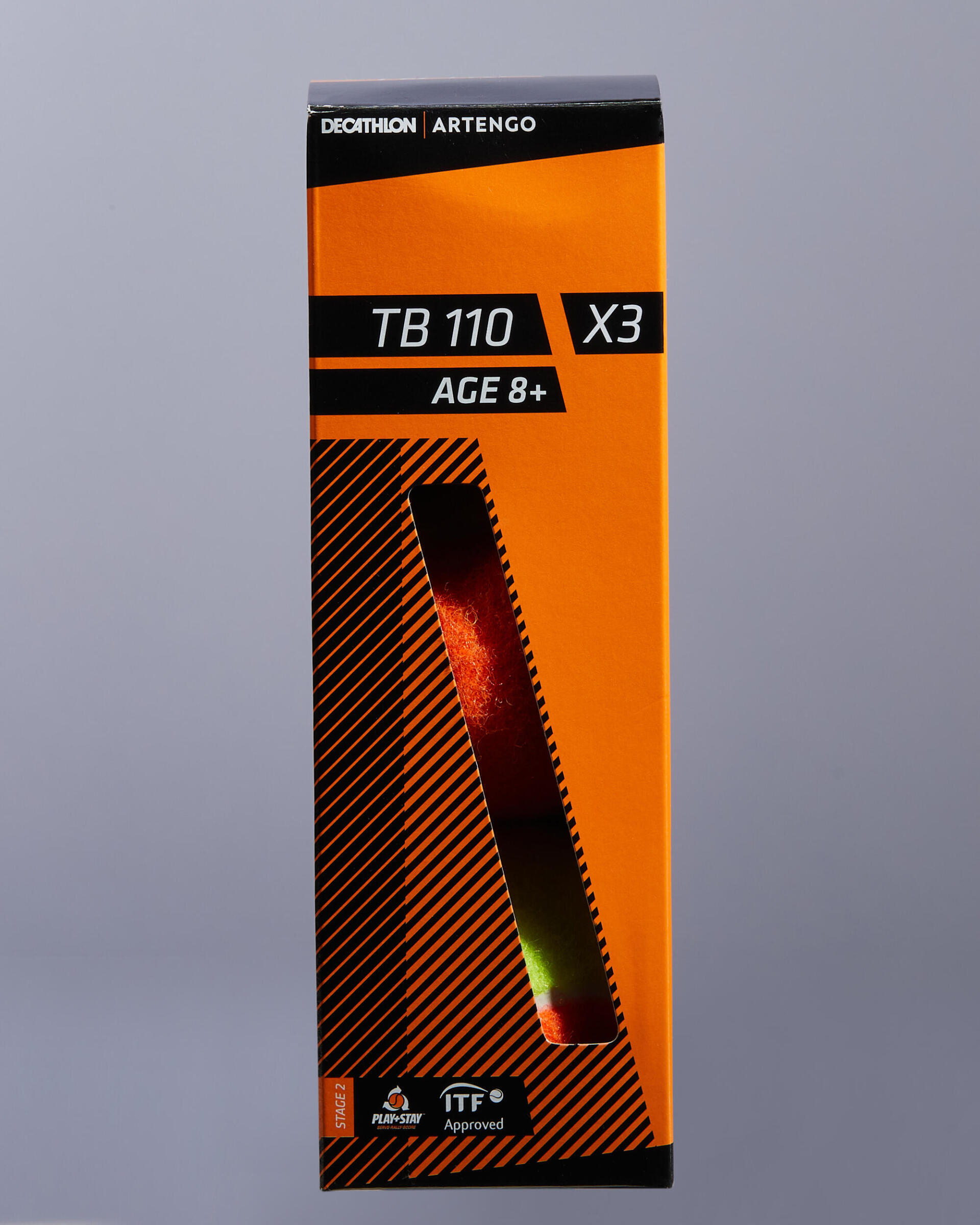
Tb110 ball - stage 2
This tennis ball is good for kids aged 8 to 11. They are slow balls.
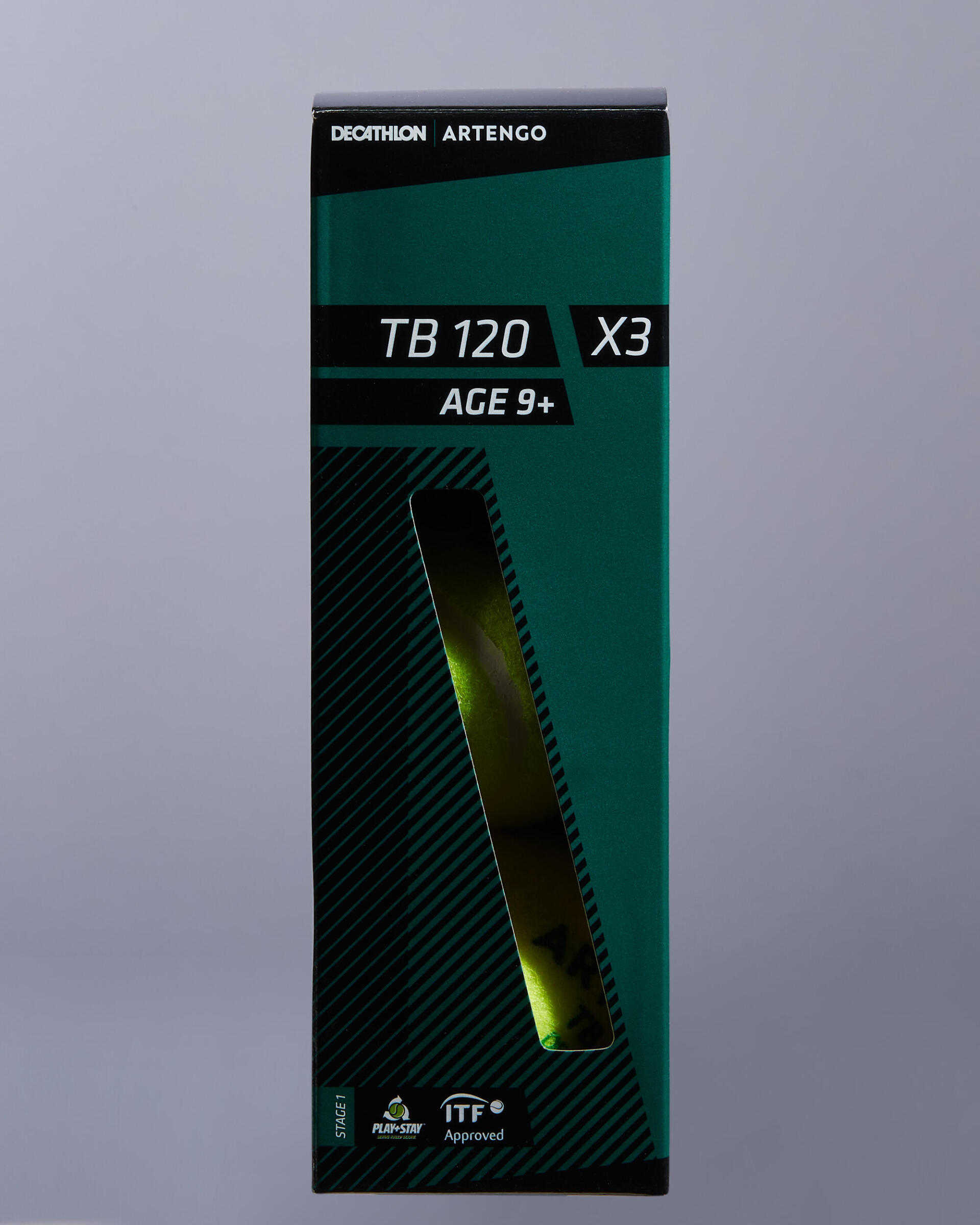
Tb120 ball - stage 1
Our designers created this ball for kids aged 9 to 12 who want to improve their skills. It's also great for beginner adults. They are slow balls.
These balls are perfect for kids who are beginning to play competitively. There are pressure and pressureless options.

Tb160 pressureless ball
This pressureless ball is comfortable and durable, and it's perfect for beginner players and for training use. The soft core and quality felt make it a comfortable ball to hit.

Tb110 pressure ball - stage 2
Our designers created this pressure ball for kids aged 8 to 10 for use during their first competitive matches.

Tb120 pressure ball - stage 1
Our designers created this pressure ball for kids aged 8 to 12 for use during their first competitive matches.
There are two types of pressure balls: training balls and match balls. The choice will depend on what you want in terms of feel, bounce stability and ball control.
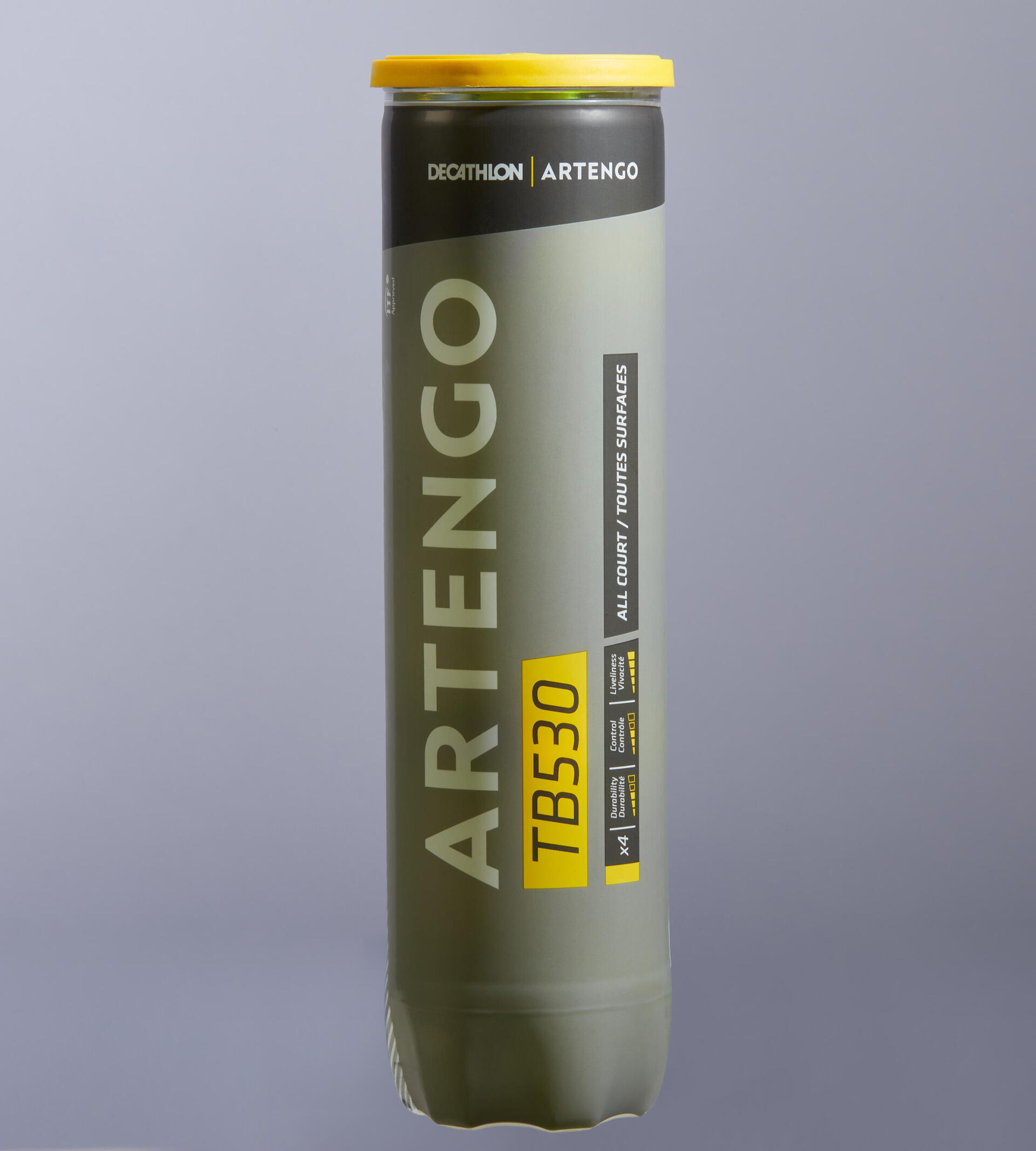
Training pressure balls
Training pressure balls are made with a rubber core and majority synthetic felt for a good feel. They are balanced and lively and offer a good feeling of control.
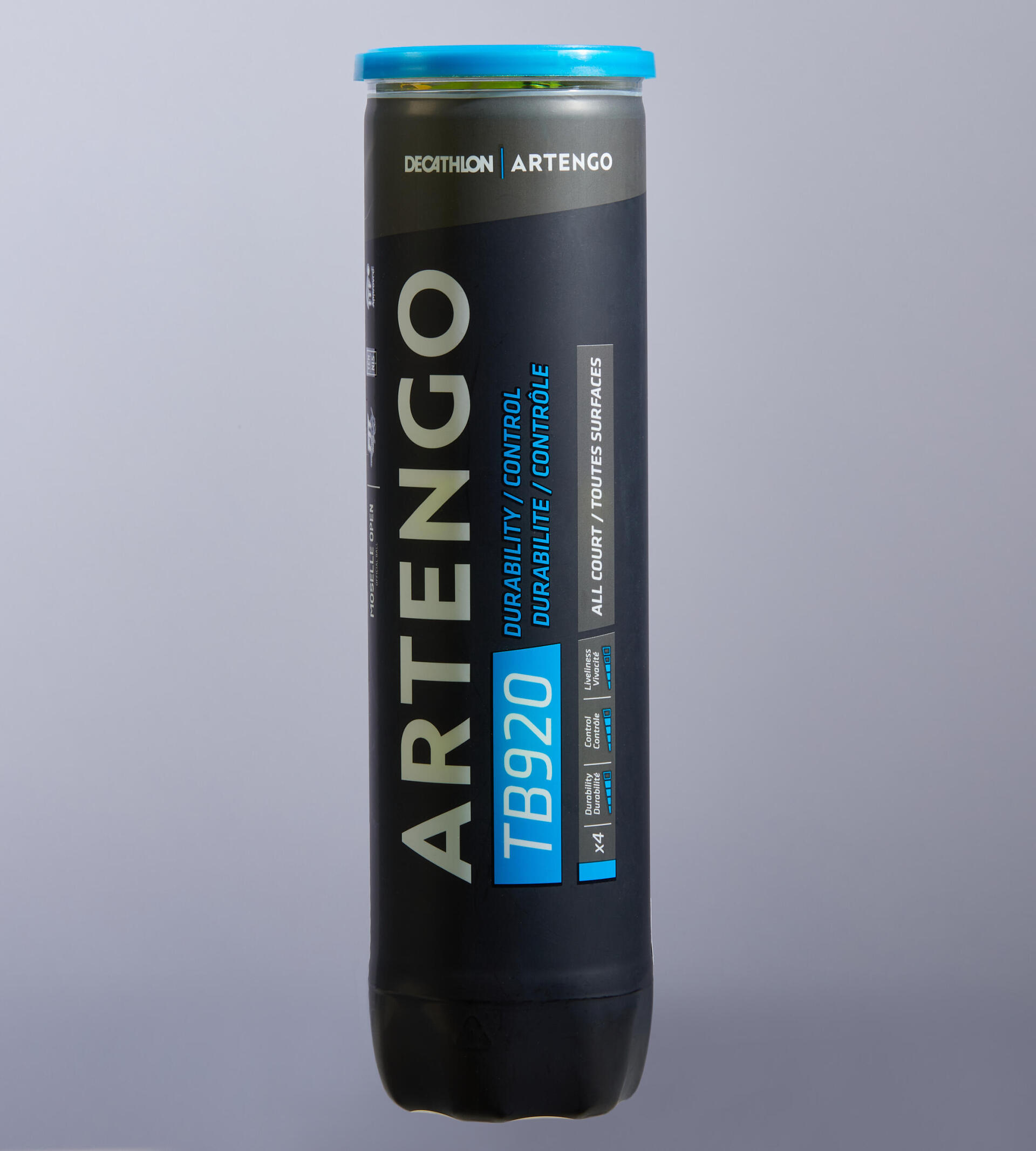
Tb920 match pressure balls
Match pressure balls feature a rubber core and majority natural felt for durability, maximum control and good bounce stability.

Tb390 match pressure ball
Our designers created this match ball for playing on hard or clay courts. This premium tennis ball is very durable and lively.
Choosing the right tennis balls also depends on your skill level: beginner, intermediate or advanced.
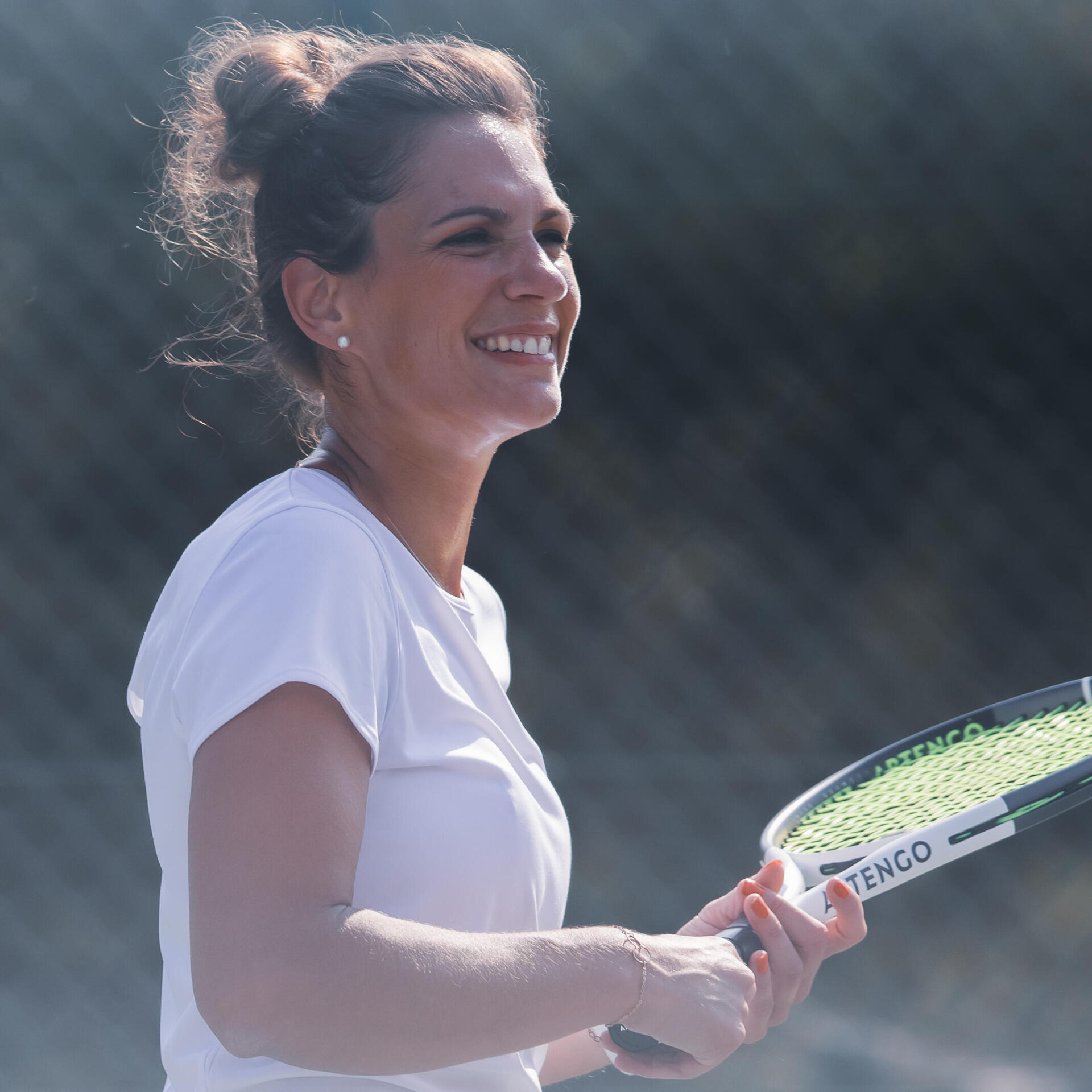
Beginner players
You'll need durable balls that are easy to play, with a level of control that is suited to your level. You should go for slow or pressureless balls.
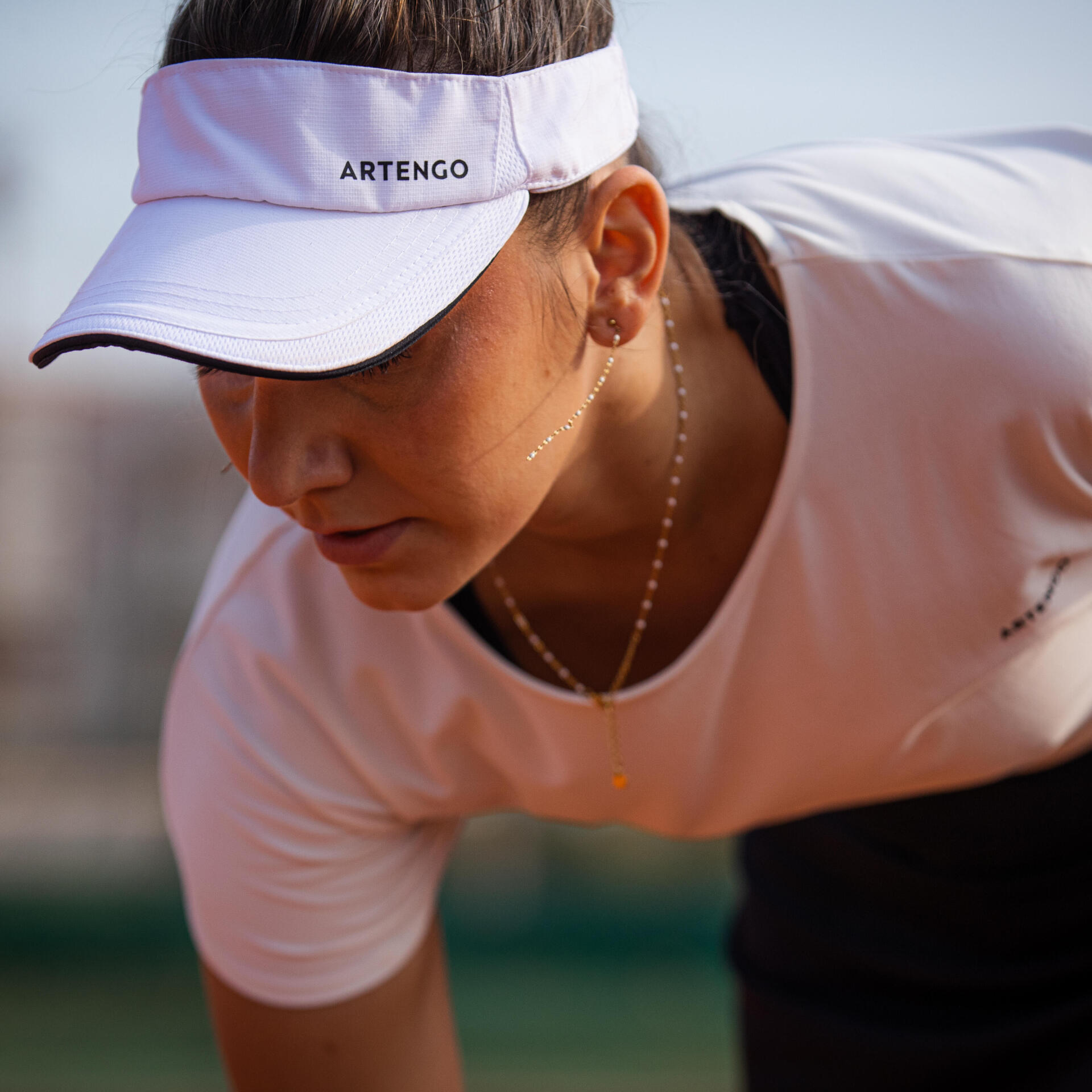
Intermediate players
You'll need balls that are durable over time. They should be comfortable and versatile. This will give you a feeling of control when hitting the ball. You should choose pressure balls.
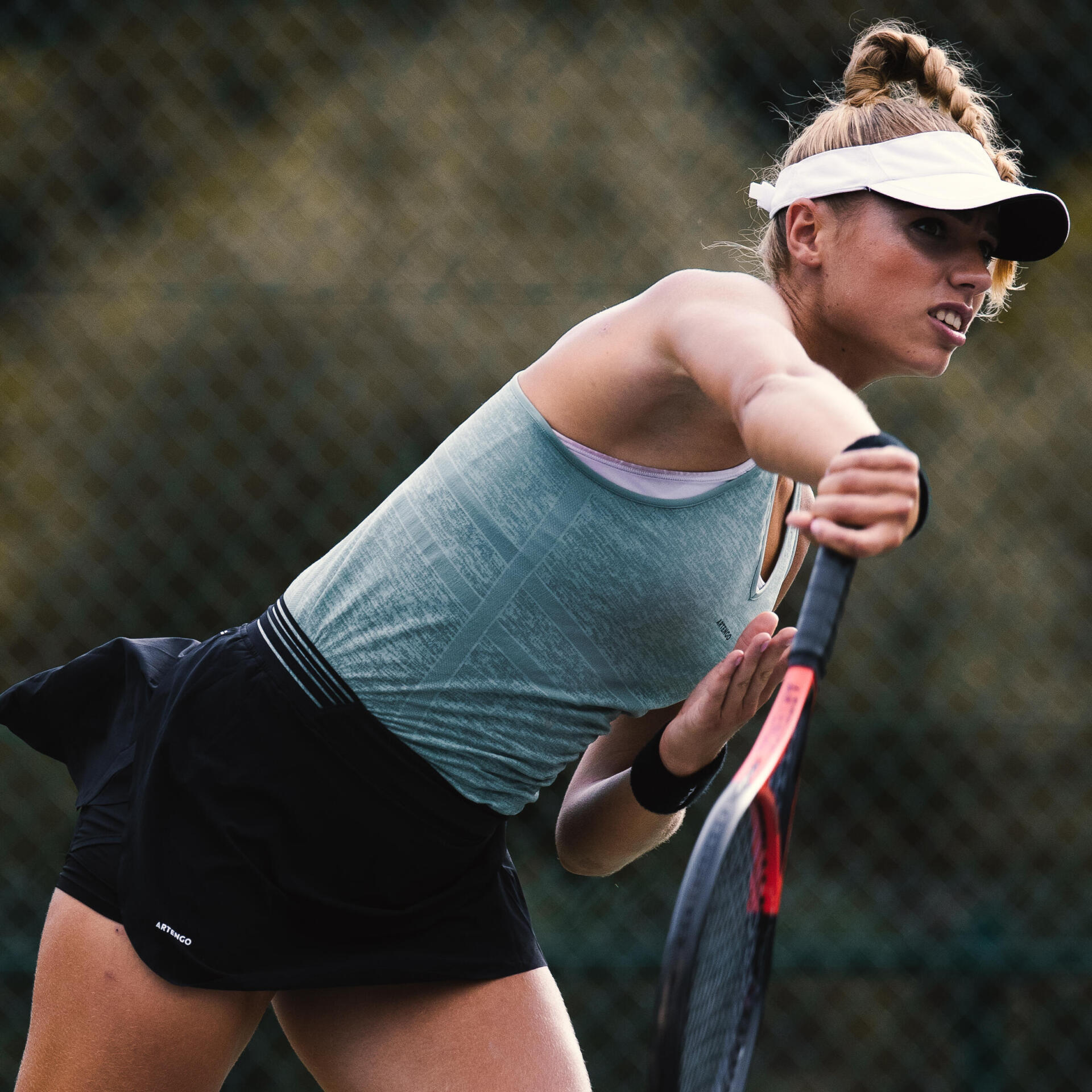
Advanced players
You'll need balls with excellent bounce stability. They'll also need to be durable and have a balance of liveliness and control suited to your level. You should opt for balls made with majority natural felt and high-quality rubber.
Your choice of tennis balls will depend on various factors: your level of play, the amount of time spent on-court and the technical specifications of the product.
Pressureless balls are perfect for children who are just starting tennis and for adults who are only just discovering tennis. You must therefore choose your ball based on your age and the bounce height you are looking for.

Red dot foam, plastic or felt ball
Red dot foam, plastic or felt balls are perfect for children aged 4 to 6. They have a bounce height that is 25% the one of a classic ball.

Orange dot felt ball
Orange dot foam, plastic or felt balls are perfect for children aged 7 to 9. They have a bounce height that is 50% the one of a classic ball.

Green dot felt ball
Green dot felt balls are aimed at children of 9 years old and up, and have a bounce height that is 75% the one of a classic ball. They will also be ideal for adults who are just starting the tennis.
There are two types of pressurised ball: the training ball and the competition ball. Your choice of ball will be made based on your expectations in terms of sensations, bounce quality and ball control.

Pressurised training balls
Pressurised training balls are composed of a rubber core and synthetic felt outer, which deliver a great playing sensation. As the name suggests, this ball will be perfect for training.

Pressurised competition balls
Pressurised competition balls have a rubber core and a natural felt outer which gives them a very long product life, optimal control and a great bounce quality.
Your choice of tennis balls will also depend on your playing duration, which will fall into one of three categories: occasional, regular and intensive.
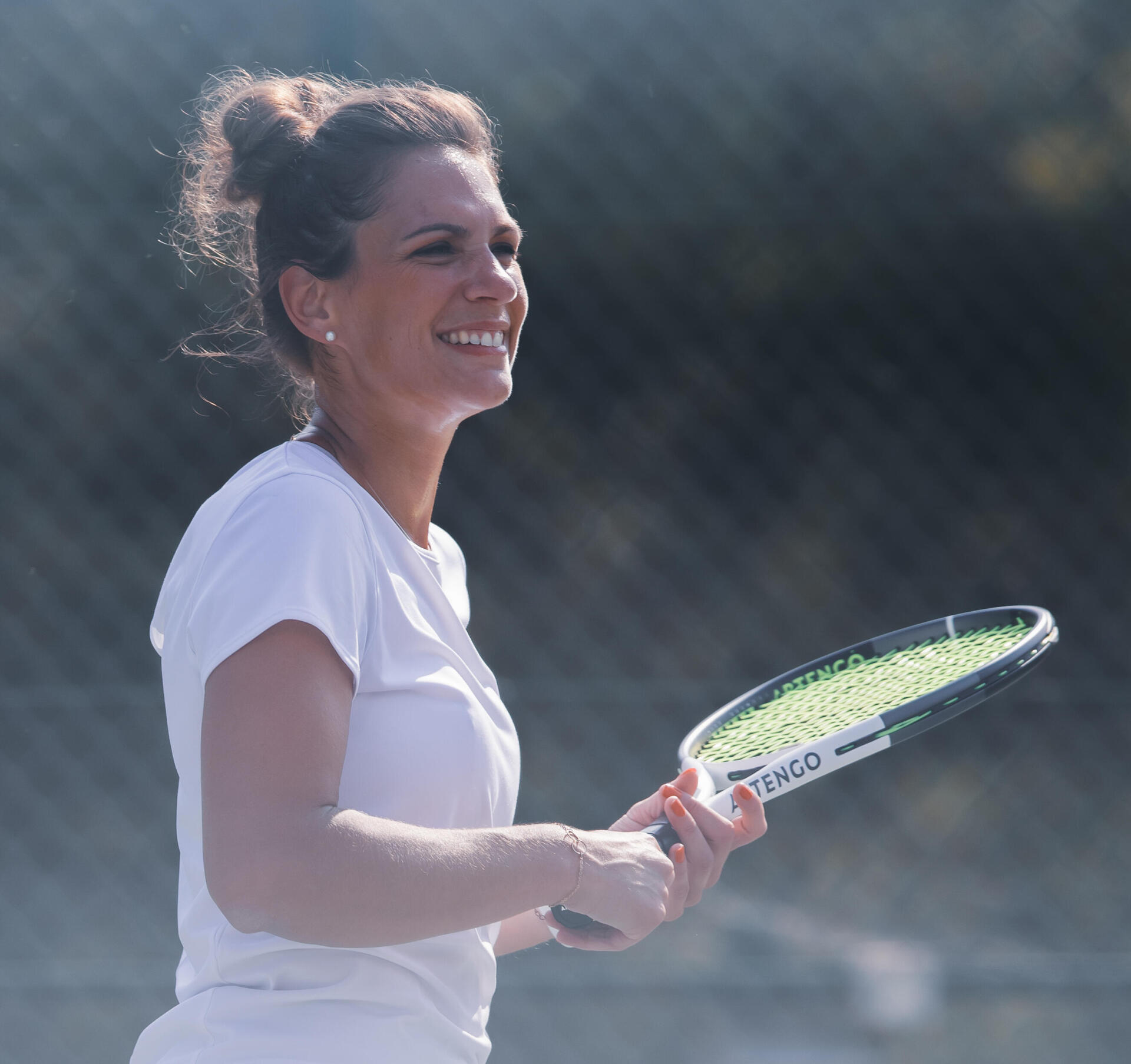
Occasional player
You need balls which are durable and easy to play with. They should have a bounce which is in line with your playing ability. You need slow balls which are not compressed.
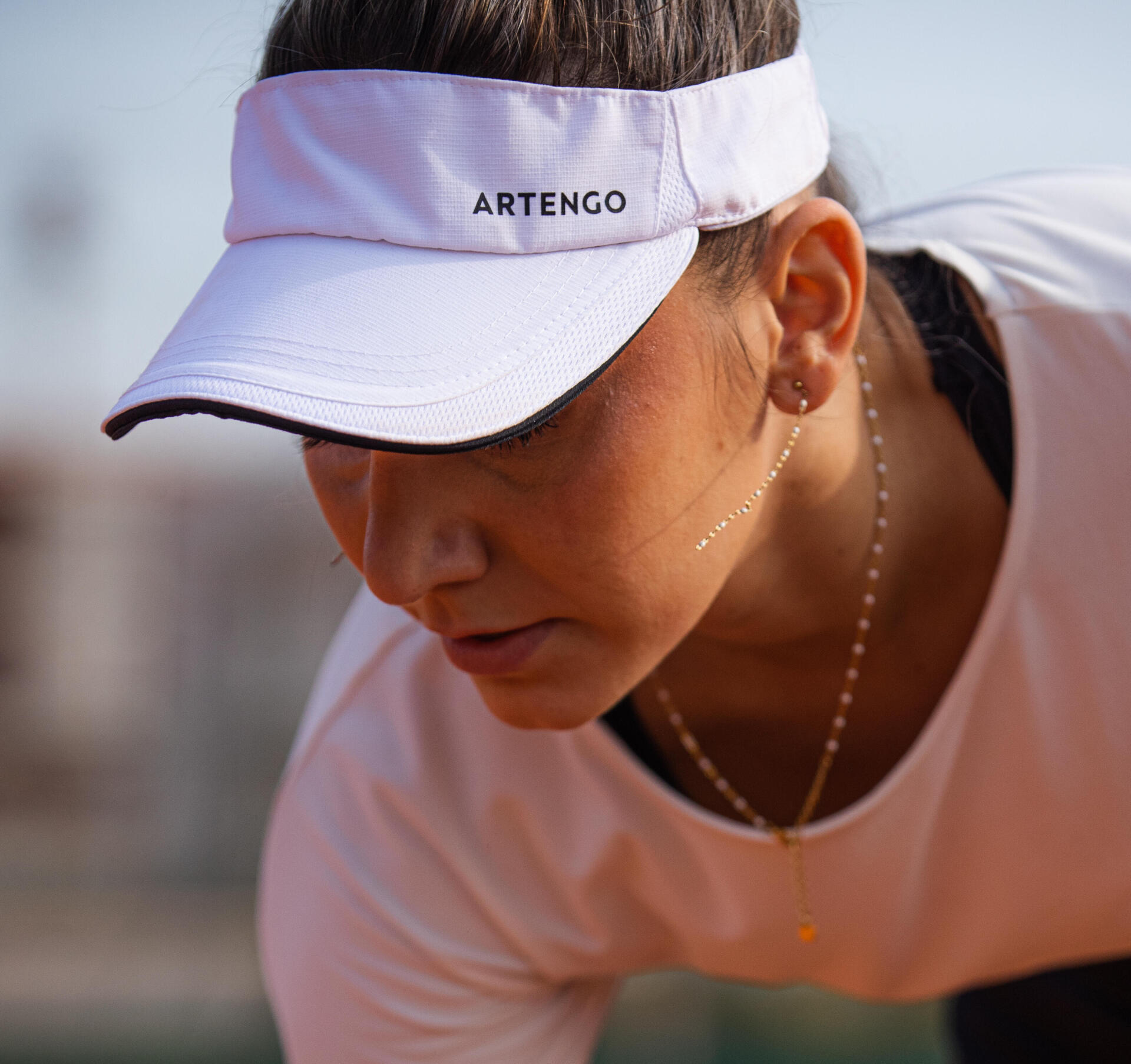
Regular player
You’ll be looking for a ball which can last longer. It should have good bounce. You should feel in control when you hit it. You need lively, compressed balls.
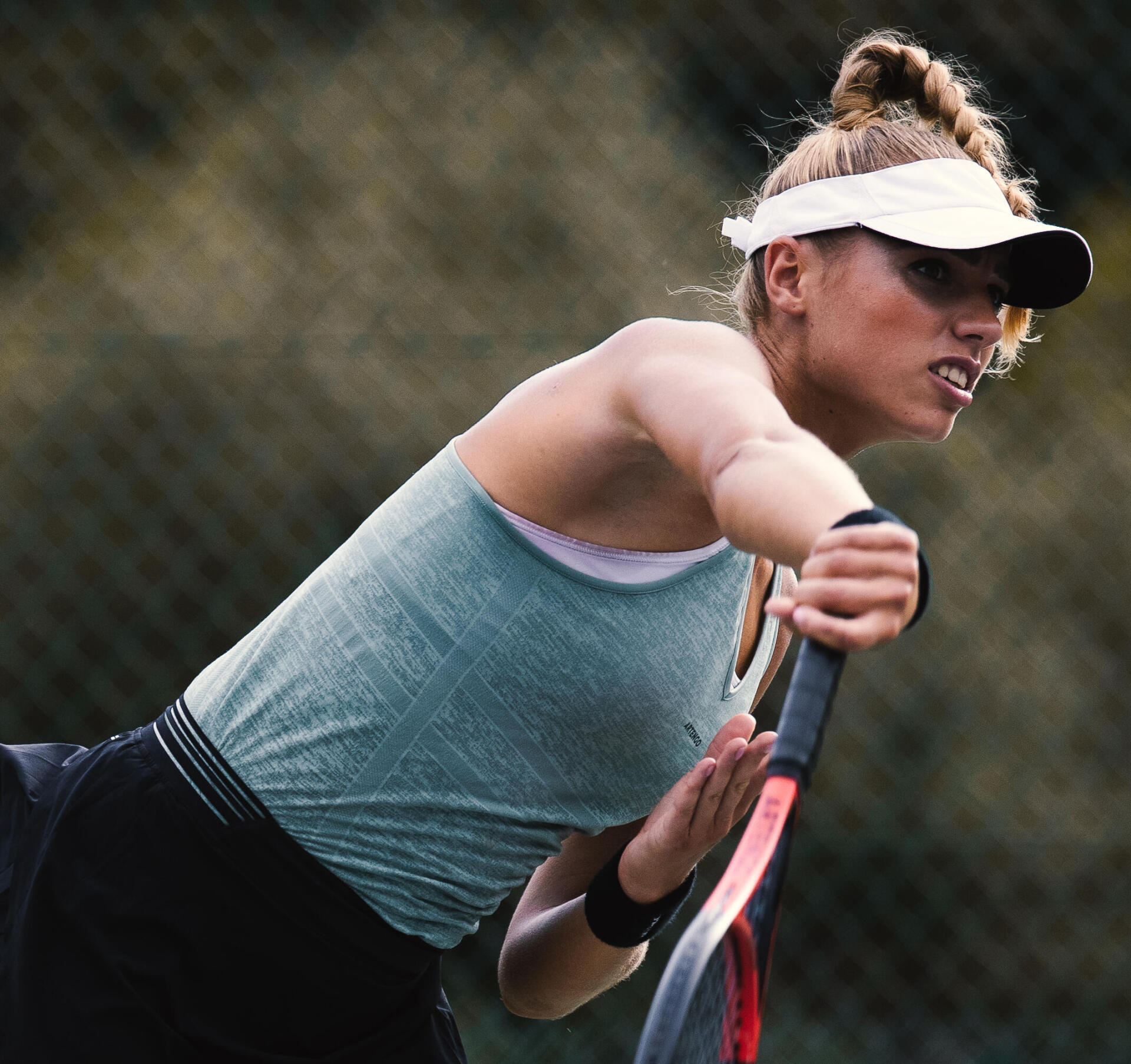
Intensive player
Your top priority will be balls with excellent bounce. They will need to be durable and the bounce should suit your playing ability. You need top of the range balls made from felt and rubber.

If you play tennis on a regular basis, you'll want to play with match balls to ensure a better feel and durability. Match balls are mostly made from natural felt and natural rubber. This is the case for our TB920 ball, which is used by professionals at the Moselle Open. If I can share one tip, it's that playing with a "match ball" will be more enjoyable!